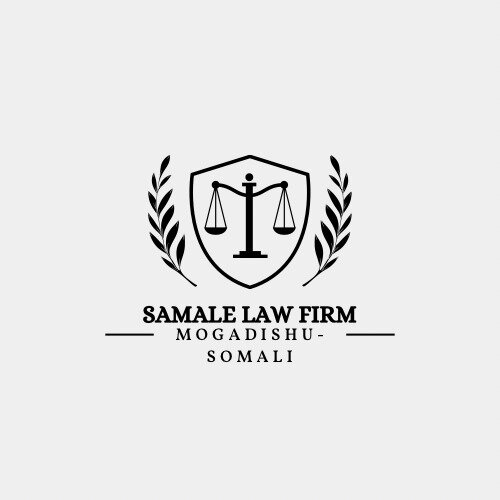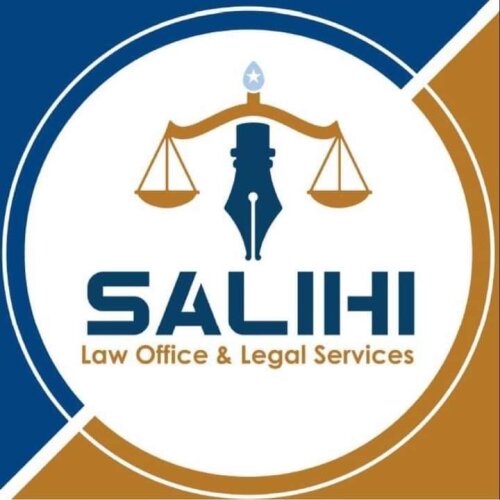Best Oil, Gas & Energy Lawyers in Mogadishu
Share your needs with us, get contacted by law firms.
Free. Takes 2 min.
List of the best lawyers in Mogadishu, Somalia
About Oil, Gas & Energy Law in Mogadishu, Somalia
Mogadishu, as the capital city of Somalia, is a central hub for political and economic activities, including those related to the oil, gas, and energy sectors. Understanding Somalia's rich potential in oil and gas reserves, the industry is critical for boosting economic growth in the country. Over recent years, Somalia's government has been making concerted efforts to attract foreign investment in this sector. However, navigating the legal landscape requires a nuanced understanding of local regulations, agreement structures, and sector-specific challenges.
Why You May Need a Lawyer
The complexities involved in oil, gas, and energy projects necessitate professional legal assistance at various stages. Here are some common situations where legal expertise might be required:
- Contract Negotiation and Drafting: Whether dealing with joint ventures, production sharing agreements, or service contracts, skilled lawyers can help draft and negotiate terms that protect your interests.
- Regulatory Compliance: Understanding and adhering to local regulations and environmental laws is essential to avoid legal pitfalls.
- Dispute Resolution: Legal professionals can help mediate or litigate disputes that arise over contracts, land use, or environmental impacts.
- Investment and Partnerships: Setting up proper legal structures for investments or partnerships can ensure the legality and effectiveness of business operations.
- License and Permit Acquisition: Acquiring necessary licenses and permits often requires navigating complex bureaucratic processes.
Local Laws Overview
Key aspects of Somali law relevant to the oil, gas, and energy sectors include:
- Petroleum Law: Somalia’s Petroleum Law outlines how oil and gas resources are managed and exploited. It mandates transparency in dealings and aims to ensure sustainable development.
- Environmental Regulations: Environmental laws focus on minimizing the ecological impact of energy projects, crucial for acquiring operational permits and complying with international standards.
- Taxation and Revenue Sharing: Understand the fiscal framework, including how revenues are shared between government entities and operators, and applicable taxes.
- Land Use Laws: These laws govern how land can be utilized for energy exploration and production, often necessitating agreements with local communities.
Frequently Asked Questions
What is the first step in starting an oil and gas project in Somalia?
The primary step involves acquiring a thorough understanding of the legal environment, followed by securing necessary licenses and entering agreements with relevant government bodies.
How does the Petroleum Law affect foreign companies?
The Petroleum Law encourages foreign investment by establishing clear guidelines for investment but requires adherence to regulations promoting transparency and sustainable development.
What are the common environmental regulations?
Environmental regulations in Somalia focus on reducing emissions, protecting biodiversity, and ensuring that any exploration activities do not harm ecosystems.
Are there opportunities for renewable energy development in Somalia?
Yes, Somalia has significant potential for renewable energy, especially solar and wind, and the government is interested in developing these resources alongside oil and gas.
How are disputes typically resolved?
Disputes are often resolved through negotiation, but arbitration and litigation are used if necessary, with a preference for solutions that maintain business relationships.
What roles do local communities play in energy projects?
Local communities are vital stakeholders, and engaging them through consultations and agreements can ensure smoother project implementation.
Do I need local partners to start an energy business in Somalia?
While not mandatory, partnering with local businesses can greatly enhance your understanding of the regulatory environment and community relations.
What taxes are applicable to energy companies?
Energy companies are subject to corporate taxes, royalties, and other levies as outlined in the fiscal framework within the Petroleum Law.
How can lawyers assist with obtaining permits?
Lawyers can facilitate the permit process by liaising with government departments, ensuring all required documentation is complete and in compliance with regulations.
How is revenue shared from oil and gas production?
Revenue sharing is defined in agreements with the government and usually involves a combination of royalties, taxes, and possibly production sharing percentages.
Additional Resources
For further guidance, the following resources and organizations can be helpful:
- Somalia Ministry of Petroleum and Mineral Resources: The primary body governing petroleum activities in Somalia.
- Somali Petroleum Authority: Regulates the upstream oil and gas sector.
- Chamber of Commerce, Mogadishu: Provides resources and networking opportunities for businesses, including those in the energy sector.
- Environmental Protection Agency: Offers guidelines and regulations on environmental standards for energy projects.
- Somali Legal Aid Organization: Provides information and support related to legal matters in Somalia.
Next Steps
If you need legal assistance in the oil, gas, and energy sector in Mogadishu, consider taking the following steps:
- Research and identify law firms with expertise in energy law and experience operating in Somalia.
- Schedule consultations to discuss your needs and assess potential legal strategies.
- Gather all pertinent information and documentation related to your business or project to facilitate effective legal support.
- Engage with a lawyer who has a deep understanding of local laws and regulations relevant to your needs.
Lawzana helps you find the best lawyers and law firms in Mogadishu through a curated and pre-screened list of qualified legal professionals. Our platform offers rankings and detailed profiles of attorneys and law firms, allowing you to compare based on practice areas, including Oil, Gas & Energy, experience, and client feedback.
Each profile includes a description of the firm's areas of practice, client reviews, team members and partners, year of establishment, spoken languages, office locations, contact information, social media presence, and any published articles or resources. Most firms on our platform speak English and are experienced in both local and international legal matters.
Get a quote from top-rated law firms in Mogadishu, Somalia — quickly, securely, and without unnecessary hassle.
Disclaimer:
The information provided on this page is for general informational purposes only and does not constitute legal advice. While we strive to ensure the accuracy and relevance of the content, legal information may change over time, and interpretations of the law can vary. You should always consult with a qualified legal professional for advice specific to your situation.
We disclaim all liability for actions taken or not taken based on the content of this page. If you believe any information is incorrect or outdated, please contact us, and we will review and update it where appropriate.










